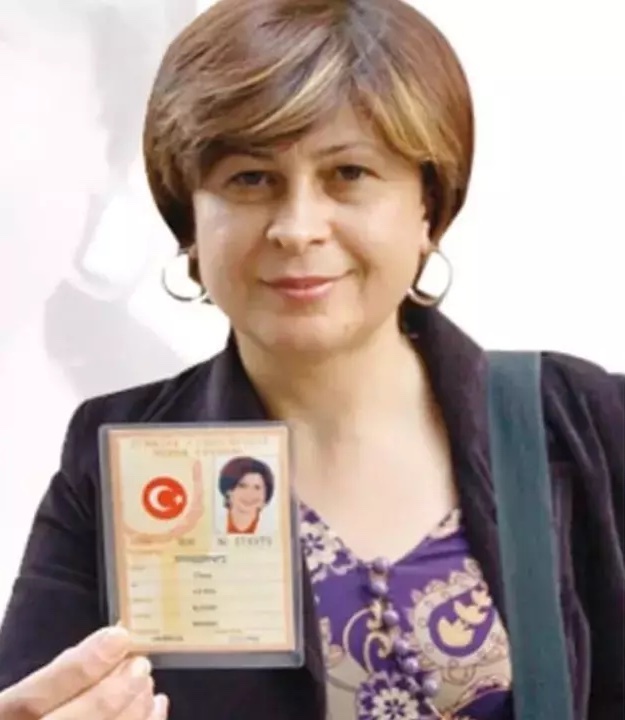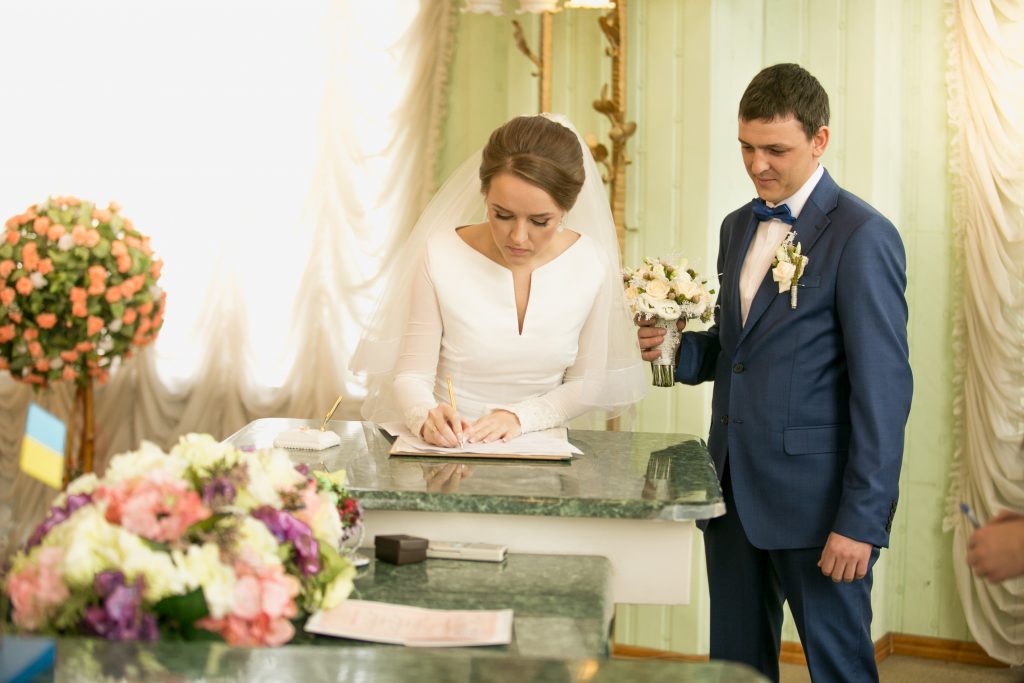Married women in Türkiye will be able to use their maiden name without any reference to their husbands’ surnames.
The Turkish Constitutional Court has decided to annul Article 187 of the Turkish Civil Code, which compelled women to take their husbands’ surnames and ditch their own after marriage.
The landmark ruling last month has paved the way for women to continue to use their maiden name automatically after marriage, removing the need for any further legal action on their part.
The Constitutional Court found Article 187 of the Civil Code to be contrary to the equality rights of women and accepted that married women have the right to use just their maiden name. The decision, which was published in the Official Gazette on 28 April, will enter into force in nine months’ time.
The 8th Family Court of Istanbul filed the case for the annulment of Article 187 at the Constitutional Court on the grounds that “while it is possible for the man to use the surname he acquired at birth throughout his life, the fact that the same right is not granted to the woman is incompatible with the principle of equality”.
Article 187 states that, “A woman takes her husband’s surname upon marriage; however, she can also use her previous surname in front of her husband’s surname with a written application to the marriage officer or later to the civil registry office.”
The Constitutional Court ruled against the legal provision in force and accepted the annulment request.
The ruling means married women have full control over their names. They will no longer be required to seek court permission or make a legal application to continue to use their maiden name along with their husband’s surname as a double-barrelled surname. They will have this right automatically. Moreover, married women now also have the legal right to simply use their maiden names and mirror their husbands’ rights to use their surnames from birth.
The Court’s judgment stated that “according to the Constitution, men and women have equal rights, and the family is based on equality between spouses” but there was different treatment on the basis of gender between spouses in similar situations. “The main thing in the principle of equality is that women can benefit from equal rights with men without resorting to a judicial remedy,” the Court also stated.
Ayten Ünal Tekeli the first to bring a legal challenge
In recent years, many individual applications have been made to the Turkish courts and also to the European court by women to keep using their maiden name alone instead of taking their husbands’ surname. They claimed that by not allowing a woman to use just her maiden name after marriage was a violation of their rights.
One of the earliest legal challenges was from Ayten Ünal Tekeli, who took her case to the European Court of Human Rights (ECHR) after a long judicial process at the domestic courts.
After her marriage on 25 December 1990 Ayten Ünal Tekeli, who was then a trainee lawyer, took her husband’s name in accordance with the Article 153 of the Turkish Civil Code. As she was known by her maiden name in her professional life, she continued putting it in front of her legal surname. However, she could not use both names together on official documents.

Five years later, in February 1995, she brought proceedings in Izmir for permission to use only her maiden name, ‘Ünal’. The court dismissed her request on the grounds that, under Article 153 of the Turkish Civil Code, married women had to bear their husband’s name throughout their married life. On June 1995 her appeal against this decision was also dismissed by Turkiye’s Supreme Court.
However, an amendment in May 1997 to Article 153 of the Civil Code gave married women the right to put their maiden name in front of their spouse’s surname. But Ayten Ünal Tekeli preferred not to make use of that possibility, because, in her view, the amendment didn’t go far enough. She opted to take her case to the ECHR.
At this time, on November 2001, Turkiye’s new Civil Code was enacted and Article 187 was worded identically to the former Article 153.
In 2004, ECHR found her challenge valid and ruled that this aspect of Turkiye’s Civil Code violated Article 14 of the discrimination law. The ruling concluded that ‘A family unity can be maintained and consolidated without choosing a common family name, as in the legal systems of other European countries.’
In 2014, Neşe Aslabay Akbıyık a lawyer in Istanbul, filed a claim to the Turkish Constitutional Court claiming that the courts’ refusal to allow her to use her maiden name violated her rights to protection of her private life and discriminated against her based on her gender.
The Constitutional Court admited her claim that Article 17 of the Constitution had been violated and sent the decision to the relevant court for retrial in order to eliminate the violation and its consequences. Following this decision, in 2015, it was decided that the husband’s surname which she acquired by marriage, be annulled and she would be allowed to use only her maiden name.

After these two landmark cases and many others, legal changes regarding the use of maiden name only after marriage have not been made to this day and married women had to file lawsuits to use their maiden name alone.
Finally with this annulment of the Article 187, the law is expected to be renewed.
How does Turkiye compare to the rest of the world?
In 2016, 89% of married women in Britain were found to have taken their husband’s name and stopped using their maiden name, according to a national survey.
Even in the youngest age group, those respondents aged 18-34, nearly three quarters of married women had taken their husband’s name. It is surprising given that legally, married women – like anyone else in Britain – can use whatever surname they want.
Most countries in western Europe and North America follow the same pattern, although there are some exceptions.
In the US, according to a survey conducted by NYT in 2015, 68% use their husbands’ surname, and 23% keep their maiden name, while a further 8.9% choose something else, such as a double-barrelled or blending of the two surnames.
In Norway, 80% of Norwegian women who married between 1980 and 2003 (the date of the last nationally representative survey) took their husband’s surname. Conversely, 97% of men kept their name. A newborn takes the name of mother or father, or both.
In Sweden the proportion of women taking their husband’s name has declined from 77% in 2003 to 64% in 2013.
In Germany, according to the 1995 Eurobarometer, 96% of married women had taken their husband’s surname, with only 1% preferring to keep their own name.

In Australia, more than 80% of women take their husbands’ surname after marriage and around 96% of children have their father’s surname. A poll in 2013 also found that 96% of men wouldn’t change their name to bear their wife’s surname.
Illegal in Canada to change a woman’s maiden name
In Quebec, Canada, a 1981 law makes it mandatory for married women to retain their own name, and even earlier, a 1976 law banned women from taking their husbands’ surnames.
It is similar to the laws in Greece, which in 1983 made it a legal requirement for women to keep their maiden name for women. This was part of a raft of reforms made in the years after the country was free of the military dictatorship of the late 60s and early 70s.
Interestingly, there has been vocal opposition in both countries from wives wishing to take their husbands’ names.
In France, a person’s maiden or birth name is compulsory for both sexes. The retention of a person’s original surname dates back to 1789 law, meaning the name on a birth certificate cannot be changed.
Since 2013, married couples in France can take each other’s surnames but not officially.
In the Netherlands, women are required to keep their maiden name when they marry.
In Italy, a maiden name cannot be changed legally since 1975, but a husband’s name can be added as a second surname. In fellow European state Belgium, surnames are not required to change after marriage.
In both Italy and Belgium, the most popular option by married women is to use both surnames.
In Spain, the requirements and choices are somewhat different. A woman must retain her birth surname, which must include the surnames of both her mother and her father. For married couples, they are free to adopt one of each other’s two surnames.
Other Spanish-speaking countries have similar requirements. In Argentina it is not common for married women to adopt their spouse’s surname after marriage. It is the same in Chile, where a woman’s surname is never replaced by her husband’s surname and there isn’t a law to force such a change.
In South Korea, traditionally women keep their maiden names. There is no law to stop them from taking their husbands’ surnames.
Malaysia, Thailand and China have similar laws that allow separate surnames. Also in Iran, and Pakistan women can keep their maiden names for life.
In Japan, their same surname law dates back to 1898 during the imperial era. This means married couples are required to have the same surname. However the law doesn’t stipulate whose surname should change, it’s left to the couple to decide. In practice, 93% women take their husband’s surname.





